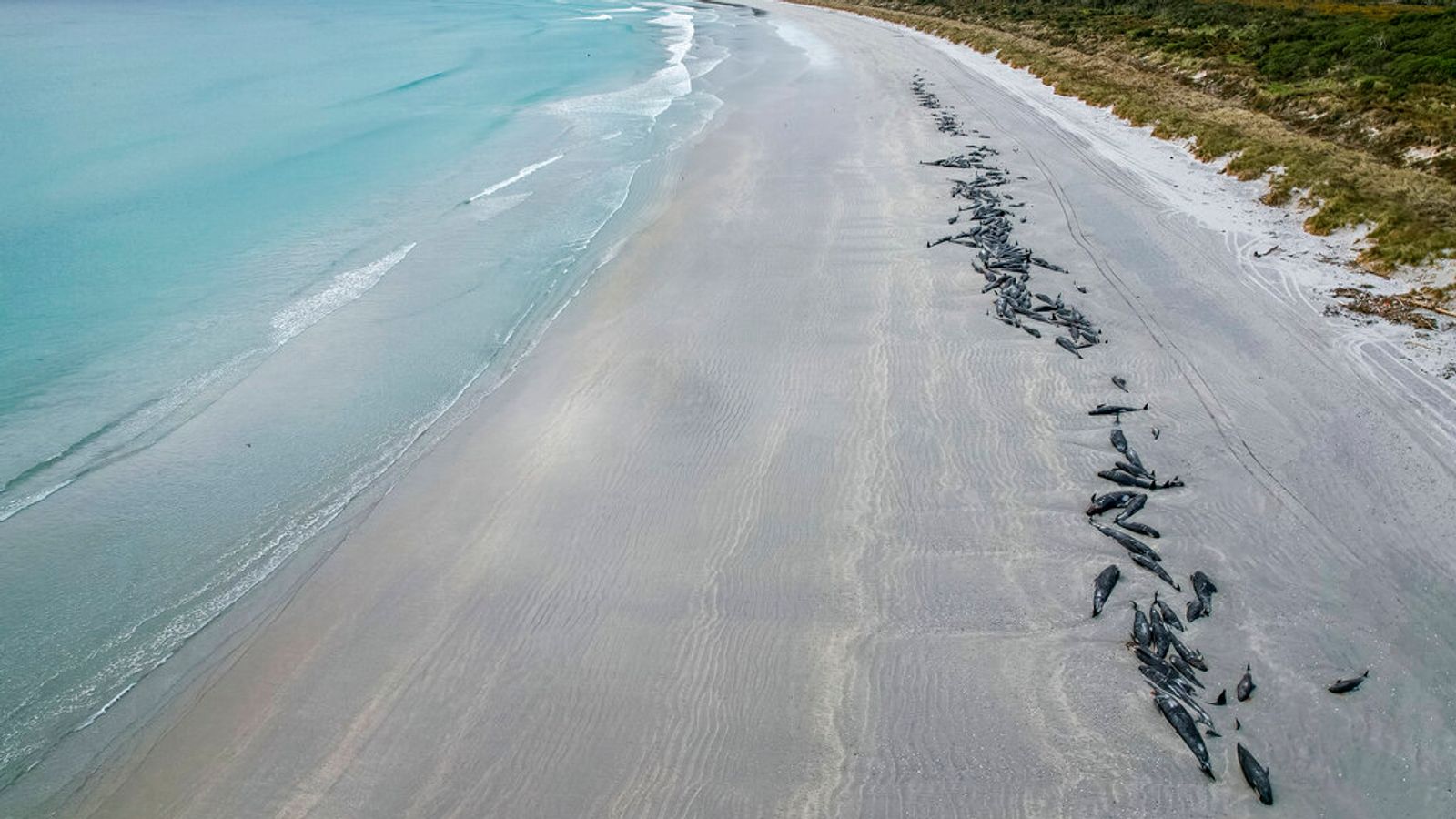Nearly 500 pilot whales have died after becoming stranded on two remote New Zealand beaches in what officials have called a “heartbreaking” loss.
The whales had beached themselves on the Chatham Islands, which are home to about 600 people and located in the Pacific Ocean about 500 miles (800km) east of the New Zealand mainland.
Warning: This article contains an image that some readers may find distressing
Some 477 whales had died after becoming stranded – including 232 that got into difficulty on Friday at Tupuangi Beach, followed by another 245 at Waihere Bay on Monday, according to the Department of Conservation.
The remote location and presence of sharks in the surrounding waters had made efforts to refloat the whales difficult.
Daren Grover, the general manager of Project Jonah, a group which helps rescue whales, said all either died naturally or were euthanised.
He said there is a lot of food for the whales around the Chatham Islands and as they swim closer to land, they would quickly find themselves going from very deep to shallow water.
New Zealand government plan to tax cow and sheep burps faces backlash
Alert level raised on New Zealand’s giant Taupo volcano – source of Earth’s largest eruption in past 5,000 years
Pregnant New Zealand journalist who sought refuge in Afghanistan after being locked out of her own country accepts offer to return with place in quarantine
Mr Grover added: “They rely on their echolocation and yet it doesn’t tell them that they are running out of water.
“They come closer and closer to shore and become disoriented.
“The tide can then drop from below them and before they know it, they’re stranded on the beach.”
The tragedy follows the deaths of about 200 pilot whales in Australia which had become stranded on a remote Tasmanian beach two weeks ago.
‘Risk of shark attack’
Dave Lundquist, a technical marine adviser for the conservation department, said of the latest incident: “We do not actively refloat whales on the Chatham Islands due to the risk of shark attack to humans and the whales themselves, so euthanasia was the kindest option.”
In a statement, the Department of Conservation said: “These events are tough, challenging situations.
“Although they are natural occurrences, they are still sad and difficult for those helping.”
Read more on Sky News:
DNA techniques to learn what oceans were like before industrial whaling
Global map of whale migration exposes growing dangers
Officials said due to the remote location of the beaches, the whale carcasses will not be buried or towed out to sea, as is often the case – but instead will be left to decompose.
The largest mass stranding of whales on the Chatham Islands was in 1918, when an estimated 1,000 animals died.
Around 100 whales and dolphins also died after being stranded in November 2020.








